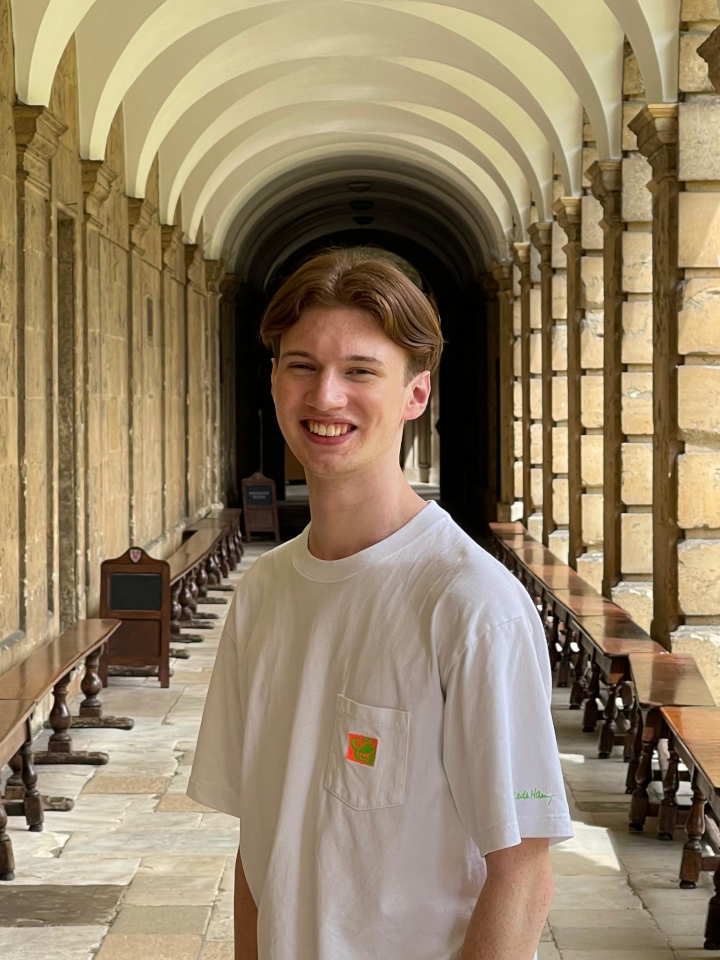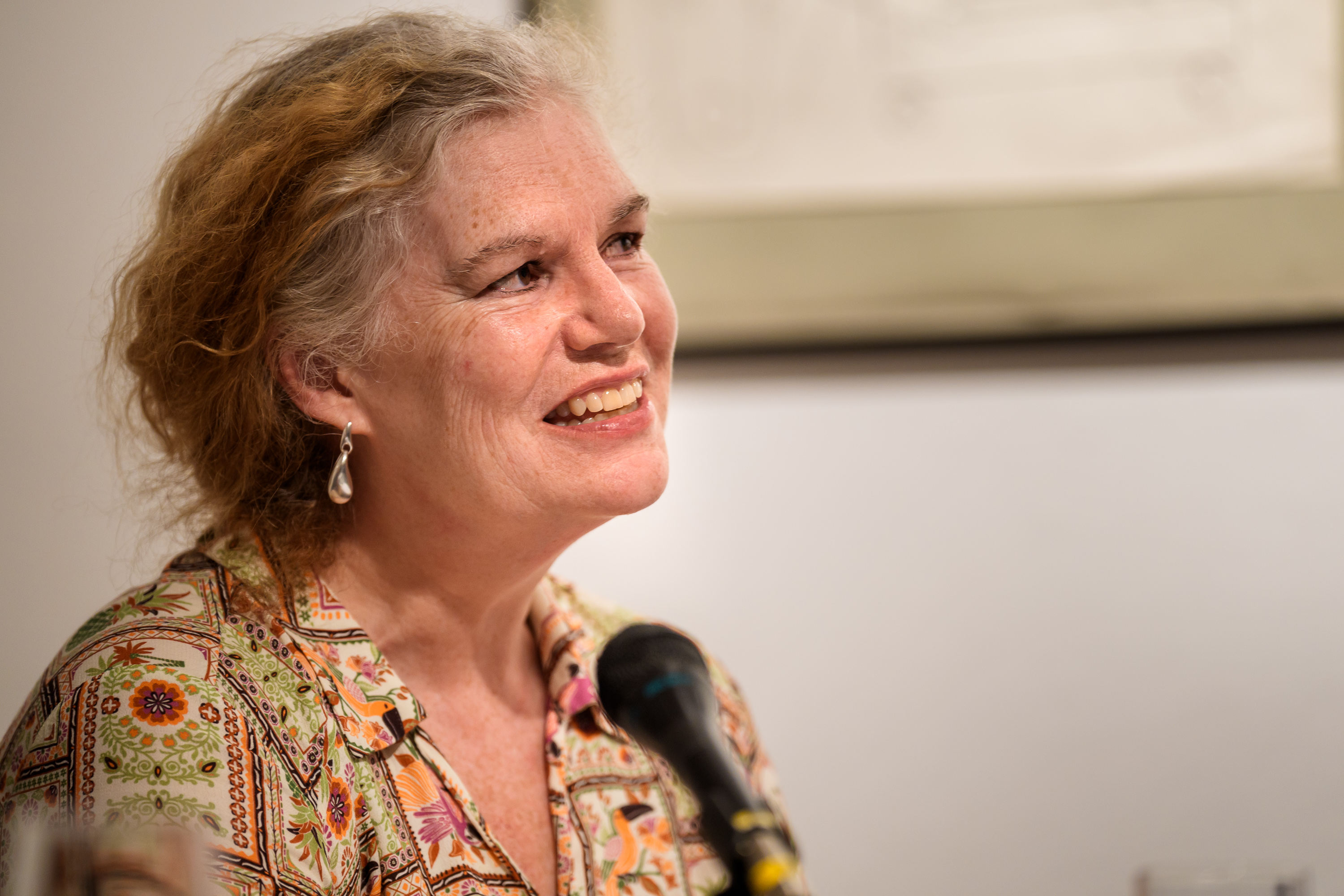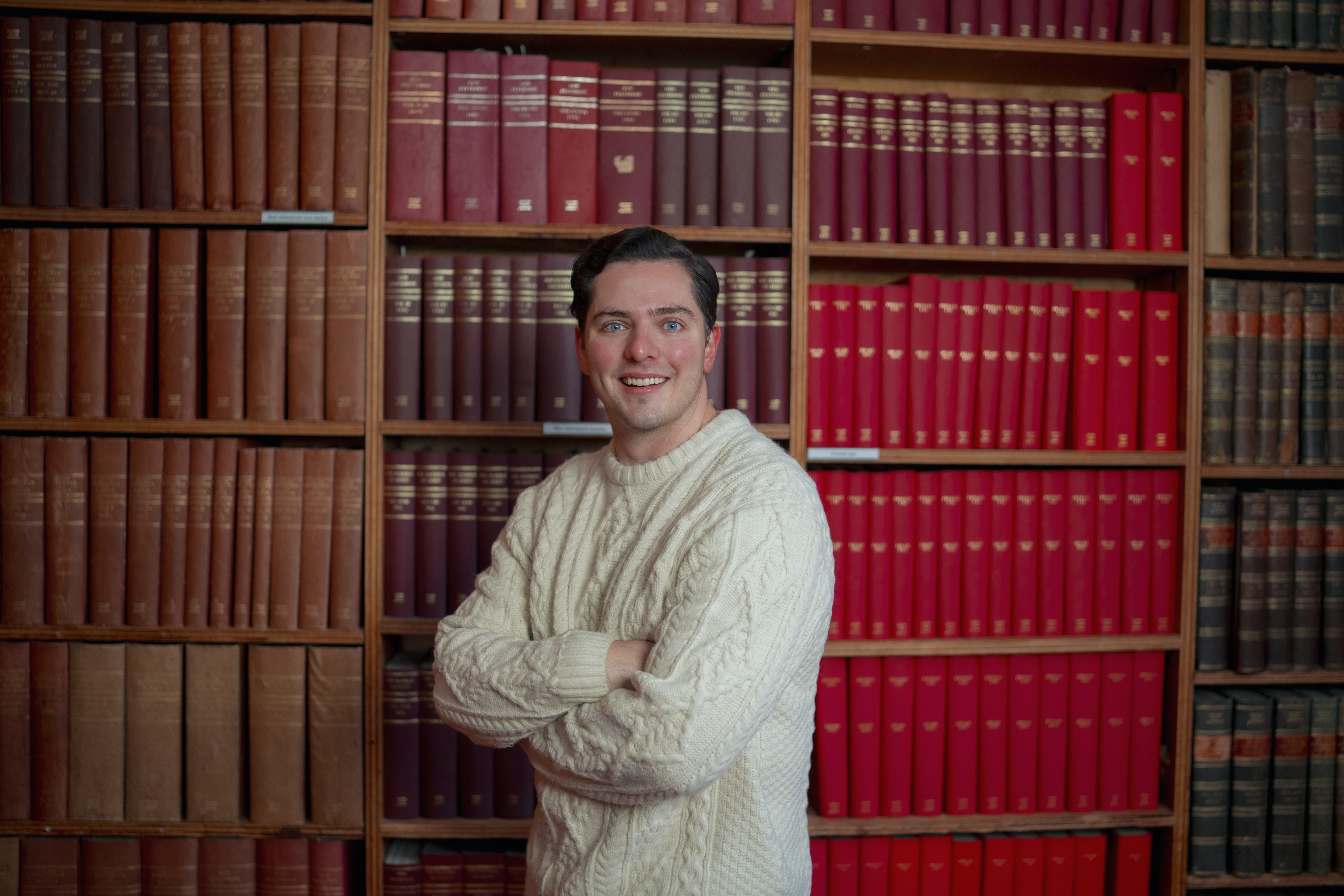The College warmly congratulates Samuel Wood who has been awarded the John Thresher Prize for his MPhys project. We asked him to tell us more about the project and his plans for the future.
Congratulations on receiving the John Thresher Prize! Can you tell us a bit about your project and what it explored?
Thank you! For the final year of the undergraduate physics programme here at Oxford, we spend around one third of our time working on an MPhys project. I was based in the Oxford Physics Microstructure Detector (OPMD) group, whose work centres on developing detectors sensitive to light (for instance in astronomical telescopes) and fundamental particles (for instance in experiments like ATLAS at the Large Hadron Collider). In order to test these detectors, it is important to have a stable source of particles with known fixed parameters. In my project, I worked on both simulating and then improving a device that generates and filters such test particles.
What led you to choosing this project?
I have always been more interested in the applications of physics, alongside the technology and equipment that makes experiments like those at CERN work. My MPhys project was self-encapsulated enough to allow me the freedom to explore its various technical aspects. However, the ability of the resulting work to allow the OPMD group to make accurate measurements of detectors, including those that form parts of global scientific projects, was an exciting prospect.
What does it mean to you to win the prize?
Winning this prize is fantastic. The physics programme at Oxford often places a lot of weight behind the theoretical aspects of the subject. As someone whose strengths lie more in the practical part of the field, it was nice to see this recognised. It is also a testament to the support I have received from many people across all years of my degree, from those on the practical course to my wonderful supervisors.
You also received two University Gibbs Prizes in your second year. What were these in recognition of?
Yes, I have been fortunate enough to previously receive two University Gibbs Prizes: one for practical work in Part A (second year) of the degree, and one for performance in the Physics Department Speaking Competition. My winning talk was about the physics of random numbers, focussing on how to build devices that are capable of generating truly mathematically-random numbers. Such devices are essential to modern life and underpin the cryptography that keeps systems like banking and the National Grid secure.
What have you enjoyed most about your physics degree?
For me, the freedom to explore the practical side of physics has been the best part of my degree. Having such a well-organised and exciting practical course (brilliantly led by one of our tutors here at Queen’s, Dr Jenny Barnes) gave me great opportunities. It helped me develop the skills I needed to work on my MPhys project and other summer research projects in the department. Meeting and collaborating with world-experts, in fields ranging from superconducting quantum detectors for astrophysics, to novel semiconductor detectors for particle physics and beyond, has been an amazing opportunity.
What has been the best thing about Queen’s?
The best thing about Queen’s is the people — both students and staff. We are by no means the largest of colleges at Oxford, and so getting to know people during my time here has been very easy, and allowed me to leave with a tight-knit group of friends for life. The beautiful seventeenth-century Upper Library was also a remarkable place to study!
What will you be doing next?
After my master’s degree I am very pleased to be staying in Oxford to complete a DPhil in Particle Physics, working jointly with the OPMD group and Diamond Light Source at the Harwell Science and Innovation Campus. The project centres on developing novel detectors with applications for X-ray imaging in a range of fields, from materials science to biomedical research.
Can you recommend a book?
It is always difficult to suggest just a single book! My current recommended-read is perhaps Frank Herbert’s Dune. I was enthralled by its more people-focussed slant on the science-fiction genre, and some of the parallels to today’s use of artificial intelligence were eerily prescient.



